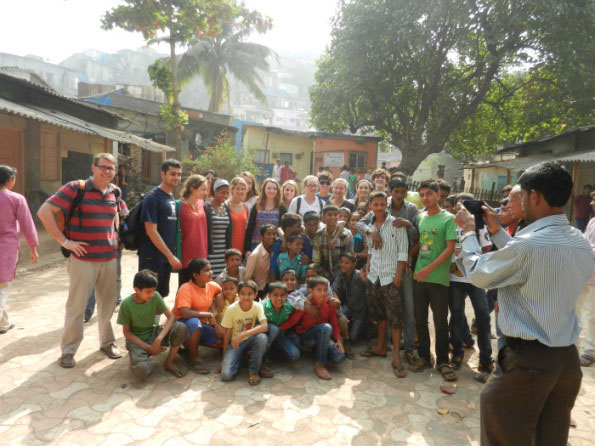Emily Beinkampen ’17, Nina Stavropoulos ’17: As the Upper School is nearing its second year of J-Term, the question of how students are chosen for international trips is still lingering on a number of students’ minds. Kim Piersall, Director of Experiential Learning, is crucial to the development of each group for J-Term. Piersall explained that international J-Term trips are encouraged, as they allow the school to provide students with various opportunities to experience different cultures and “have a real world experience with their peers.” As a teacher at Episcopal, Piersall believes that “self reliance and independence are huge,” and the fact that “we can provide that to 45 or so of our kids is a privilege.”
The J-Term selection process is anything but easy, and Piersall noted, “Many J-terms have prerequisites to meet and it is also important for each one, including the ones on campus, to have a strong group chemistry.”
She knows many people from teaching in middle school, and being an active participant in the school community, so this helps her determine which students would meld together in the best possible way. The seniors’ and juniors’ J-terms are chosen first because they are given preference over the underclassmen. Piersall stressed that there is a mix of different grades in a J Term, because there is a value of upper and lower classmen participating in classes together to create new friendships and to introduce new and different perspectives on topics to increase group dynamics.

Photo Courtesty of EA J-Term Times
“The international trips are the first courses that are rostered, and deans, department chairs, Dr. Dinkins, and Nurse Raverby are consulted for health and disciplinary concerns and any input they have about a student who would be travelling internationally,” Piersall explained. She also elaborated on the fact that once a student has already traveled once for a J-Term, they will not be allowed to travel a second year. “In an effort to provide some equity for kids, we want to offer everyone the opportunity to take an international trip.”
The department chairs and deans made the decision that freshmen, in particular, are not able to travel on J-Terms together, believing that it is in their best interest. Samuel Willis, IV Form Dean stated, “Older Upper School students should be given the priority due to general maturity and a more refined level of interest. They can get more out of it and it can have an effect on their life more quickly than it would a freshman.”
There are a vast variety of international J-Term courses this year. Teacher Charles Yespelkis gave Scholium a brief overview of the trip he and Math Department Chair, Grace Wingfield, will be leading. “For the first couple days we are going to be looking at the mural arts program in Philadelphia, which is supposed to be the best in the world.” Yespelkis goes on to explain that “Then we will go down to Jamaica and help clean up and paint a mural on an infirmary.” He concluded by explaining, “We will also learn about the plant and animal life in Jamaica so we can paint a mural that represents the culture really well.”
EA’s on-campus J-Terms this year include working with financial officers and professors, doing service downtown, learning about the nitrogen cycle, experimenting with kitchen chemistry, learning about athletics, and much more. In Piersall’s words, “They give the kids the opportunity to spread their wings and be able to reach into the local community and beyond.” She continued, saying, “In all the classes that EA offers, members gain exposure to places and people that are fantastic primary sources in their fields.”
Piersall is also very open to having conversations with kids to adjust their J-Term selection because of her value in the belief that these two weeks “take learning off the page and bring it to life.”